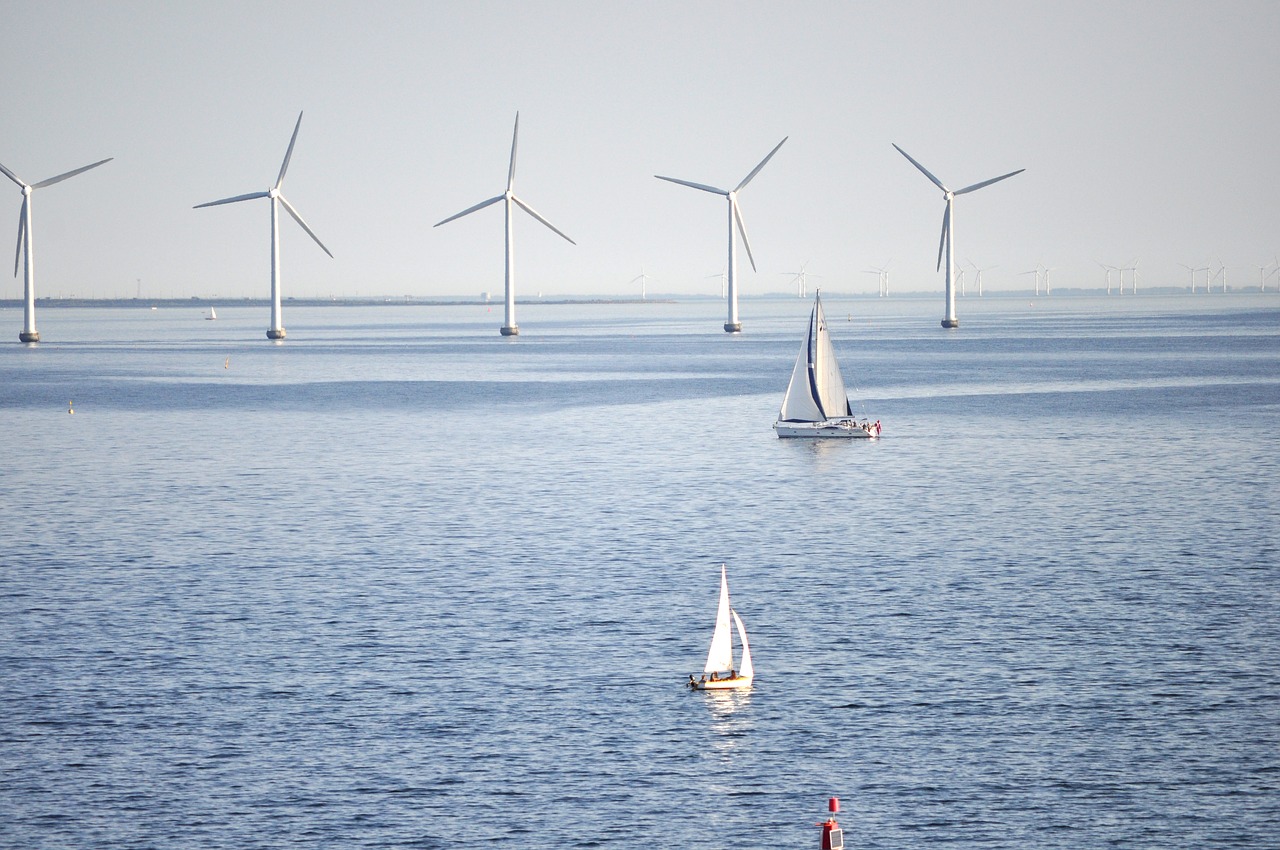The offshore installation Port in Gdańsk is waiting, and the service Port in Ustka is expected to be ready in 2026
Preparations for the construction of an offshore wind farm installation port are due to start later this year. The service port in Ustka is expected to be ready in 2026.
„We expect that the first works related to the preparation of the area for the installation port in Gdańsk will start later this year,” said Dariusz Lociński, Vice President for the development of PGE Baltica, responsible for the construction of offshore wind farms at PGE, at a meeting with journalists. The installation port is used for the construction of offshore wind farm components. The scale of the share of Polish capital in this sector will depend on whether it will be built.
Another port, this time a service port in Ustka, which will provide services to offshore wind farms, is already on the verge of construction. „We’ll start construction as soon as we get the permit. The service port for offshore wind farms is expected to be ready for operation in 2026,” added Arkadiusz Sekściński, president of PGE Baltica.
PGE is seeking more concessions in the Baltic Sea that could give it a total potential of 3.7 GW. With current projects, that would be about 7 GW.
Wojciech Jakóbik / Jedrzej Stachura
Poland may return to the Odessa-Brody-Gdańsk oil pipeline, but the ball is in Ukraine’s court
Talks are ongoing about possible financing of a fuel pipeline or an oil pipeline on the Odessa-Brody-Gdańsk route, but such a connection with Poland will depend on the will of Ukrainians after the war.
„With regard to the construction of the Odessa-Brody-Gdańsk oil corridor, and, in fact, the Brody-Adamowo section, because only this section is missing, it is necessary to determine the future of the oil sector of Ukraine,” Anna Trzeciakowska, the newly appointed Government Plenipotentiary For Strategic Energy Infrastructure told BiznesAlert.pl.
„As a result of Russia’s destruction of Ukrainian refineries, the country is forced to import finished oil products from neighbors, including Poland. Ukrainian ports in the Black Sea are blocked. We do not know whether this situation will continue once the war is over,” Trzeciakowska told us. „If the Ukrainians decide to rebuild the destroyed refineries, then it will be possible to return to talks on new oil supply routes. Poland is ready to support Ukraine in this regard,” she promised.
BiznesAlert.pl noted that the search for funds for the construction of a fuel pipeline from Poland to Ukraine is on. Talks are also being held about returning to the Odessa-Brody-Gdańsk project, which was also signaled by Poland’s PKN Orlen.
Wojciech Jakóbik
Customers prefer Poles and Turks over Germans due to energy costs
Industrial customers often choose offers from Poland or Turkey over Germany, and all because of high energy prices.
Iron foundries are sounding the alarm bells due to high energy prices in Germany. Representatives of this industry point out that the option of lower electricity prices for the industry in this country is still under discussion by politicians, but is far from being implemented.
Clemens Küpper, president of the Federal Association of the German Foundry Industry (BDG), said in an interview with the German newspaper Die Welt that the plants were losing most of their orders. Customers are increasingly ordering from competitors abroad, especially in Turkey and Poland, but also in France and China. „Because electricity and gas are so much cheaper there, even the extra logistical costs don’t matter, ” Küpper told Die Welt.
Küpper assumes that in his industry, energy prices have risen from 3 cents per kWh to 42 cents. The German foundry industry is highly developed and energy-intensive. Its energy demand averages 13 TWh per year. „If the German state does not hurry with helping the foundry industry, it may collapse. It would also be a disaster for Germany’s Energiewende,” explained Küpper, because wind turbines as well as heat pumps require metal and steel.
Die Welt / Westfalen Blatt / Handelsblatt / Aleksandra Fedorska









